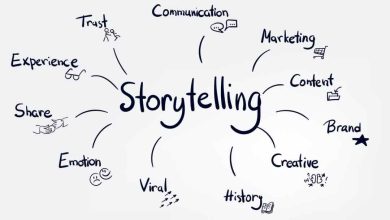What Big Brands Know About Customers’ Questions
How small businesses can turn customers' questions into sales opportunities

What big brands know about customers’ questions can be a game changer for small businesses. Amazing, right? Let’s get to know that.
It was on a rainy Monday morning in Ilorin, Tanke, Lade, a young entrepreneur, sat behind the counter of her small clothing store, scrolling through Instagram and TikTok, simultaneously.
After a few strolls on the street of IG, a notification popped up. Someone had commented on a post about her latest Ankara jacket: “How much is this?” The person commented.
Lade sighed. It’s quite understandable. She had already written the price in the caption, yet people kept asking.
Her reply was short: “Could you check the caption, please?”
The customer did not return and she thought nothing of it. But that same evening, she saw that the customer had posted a picture wearing a similar jacket.
However, it was from another clothing store down the road.
Lade was frustrated. But she didn’t know she had just ignored one of the most important customer touchpoints when it comes to interacting with a brand.
This is the kind big brands handle with strategic precision.
Why Customers’ Questions Matter More Than You Think
Every touch point in a customer’s journey is important. Therefore, customers’ questions are not just mere repetitions, especially when the prices are written.
These questions are windows into their thinking, hesitations, and buying triggers.
Big brands know that every question is a sales opportunity wrapped in curiosity shown by their customers.
Let’s take Apple as a case study. When Apple launches a new iPhone, their marketing materials answer dozens of unspoken customer questions their customers are likely to ask before they’re even asked:
What makes it different from the last model?
Will it fit my lifestyle?
Is it worth the price?
By the time a customer enters an Apple Store, they already feel informed, understood, and ready to buy.
This is what small businesses do on the other hand. They often treat customer questions as repetitive or unnecessary.
But here’s the truth: if a customer is asking, they are interested and your answer can make a difference.
The Four Types of Customer Questions Big Brands Never Ignore
1. The Price Question
In Lade’s case, this was the first hurdle. Big brands understand that price is never just a number. It’s part of a value story.
Instead of just saying, “Check the caption”, a business owner or a representative of the business who understands brand strategy would have responded like this:
“Hi Adeola, thanks for asking. The Ankara jacket is ₦15,000. It’s made from premium fabric and lined for comfort. It’s perfect for both casual outings and work events. Would you like me to share other colours?”
Do you notice the difference compared to Lade’s first response? Of course, your customer knows the price is there, but they want more.
You’re not just stating the price, you’re framing it with value, benefits, and choice.
2. The Quality Assurance Question
Big brands know that customers want reassurance about durability, authenticity, and functionality.
When Nike sells running shoes, they don’t just say, “It’s made of mesh fabric.” They say:
“It’s made with breathable mesh and cushioned soles tested by professional athletes. These shoes are built for speed and comfort over any distance.”
As a small business, you can borrow this tactic by blending every product feature with a benefit. Don’t just overdo it.
3. The Availability Question
When a customer asks, “Do you have this in blue?”, you need to know that they’re not just inquiring, they’re picturing themselves owning it.
This, big brands answer instantly and even suggest alternatives:
“The blue is available in Medium and Large. We also have a teal option that pairs beautifully with white jeans. Would you like me to reserve one for you?”
Do you notice how they make the next step easy, more like they are up selling.
4. The After-Purchase Question
Many small businesses focus only on making the sale. Big brands focus on building relationships.
When customers ask about instructions, warranties, or returns, seize these chances to increase their trust.
Here is a good example:
“This handbag comes with a one-year warranty and a free cleaning guide so it stays in perfect shape. Would you like me to send the guide now so you can see how easy it is to maintain?”
Why Small Businesses Miss These Opportunities
From observation, the biggest reasons are:
1. Impatience: they are thinking, “It’s in the caption, just read.”
2. Underestimating customer psychology: they do not realise that people buy based on emotion first, then logic follows.
3. Lack of communication systems: many small businesses do not have ready-made responses or FAQs that save time while still feeling personal.
The Story of Lade’s Transformation
Two weeks after losing that sale, Lade decided to change her approach. She created a simple “response script” for her most common customer questions, using the big-brand method.
When the next customer asked, “How much?”, she replied:
“Hi Tolu! This Ankara jacket is ₦15,000. It’s lightweight, perfect for layering, and we have it in red and navy blue as well. Which colour do you love most?”
Tolu answered within minutes: “Navy! Can I pay now?”
Lade started noticing a pattern that by answering with value, options, and a call-to-action, she was closing more sales faster.
Practical Steps for Small Businesses to Handle Customer Questions
1. List Your FAQs: Write down the 10 most common questions you get.
2. Turn Each Answer into a Mini Pitch: Include the benefit, the feature, and a call-to-action.
3. Respond Promptly: This helps build trust with your customers. Remember that delay kills desire.
4. Personalise Your Replies: Use the customer’s name and reference their interest.
5. Train Your Team: If you have staff, make sure everyone answers the same way, with warmth and clarity.
Conclusion
The truth is that what big brands know about customers’ questions is not a secret; it’s a skill that can be learned.
Big brands know that customers’ questions are buying cues. They don’t dismiss them; they embrace them, answer them strategically, and use them to build loyalty.
Small businesses that adopt this mindset will stop losing sales to competitors and start turning every question into a conversion.
So the next time someone asks, “How much?”, don’t roll your eyes like that. Smile. And give a thoughtful answer. You’re one thoughtful answer away from making the sale.




